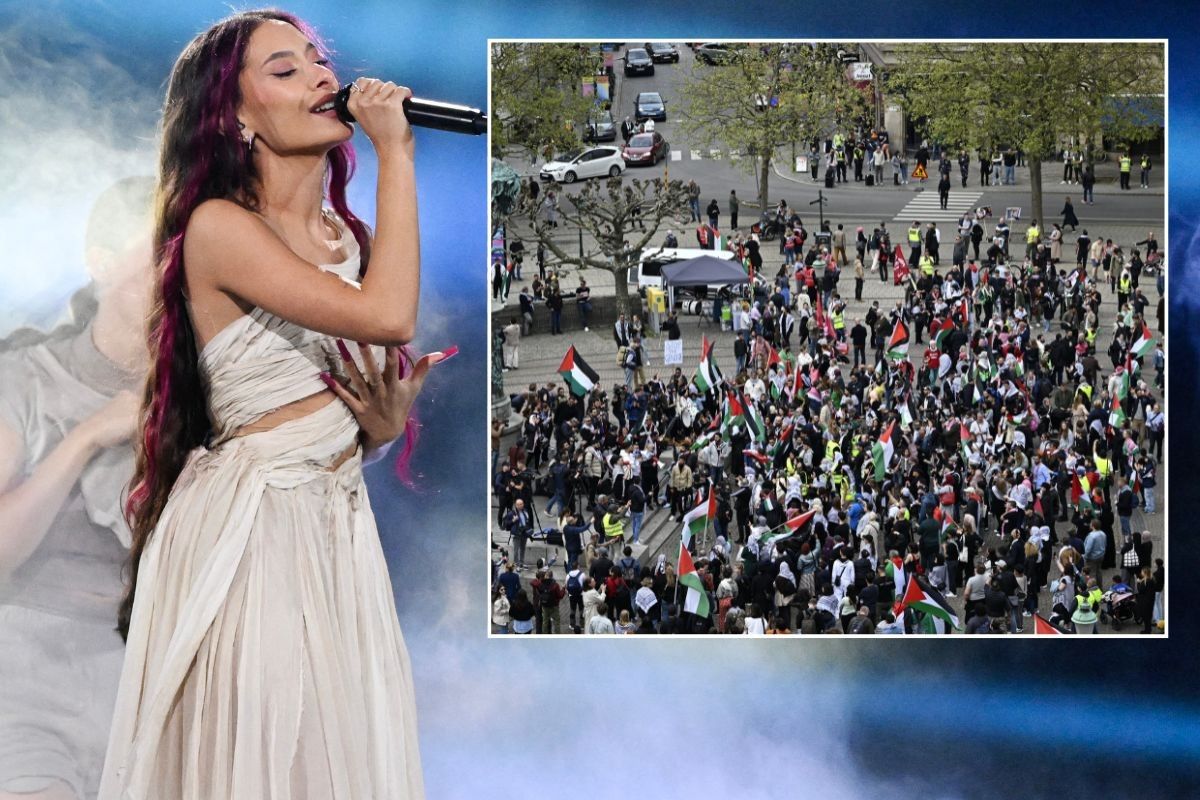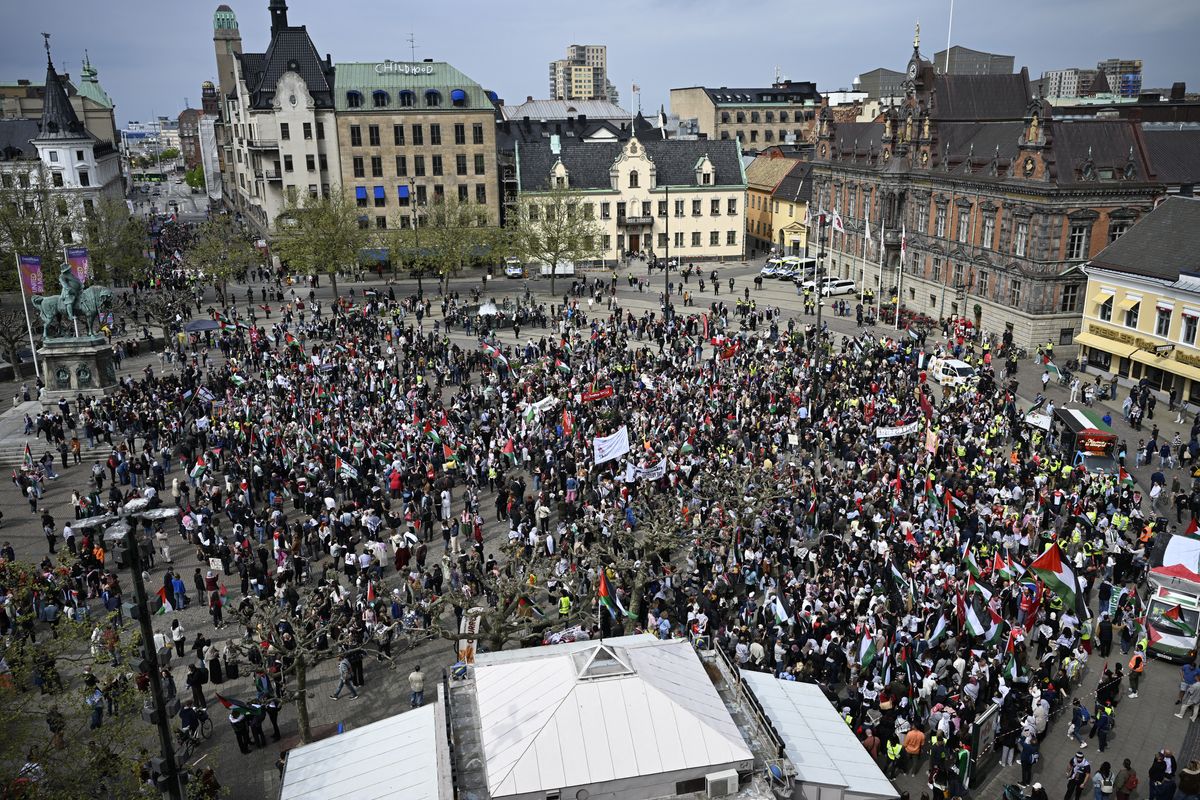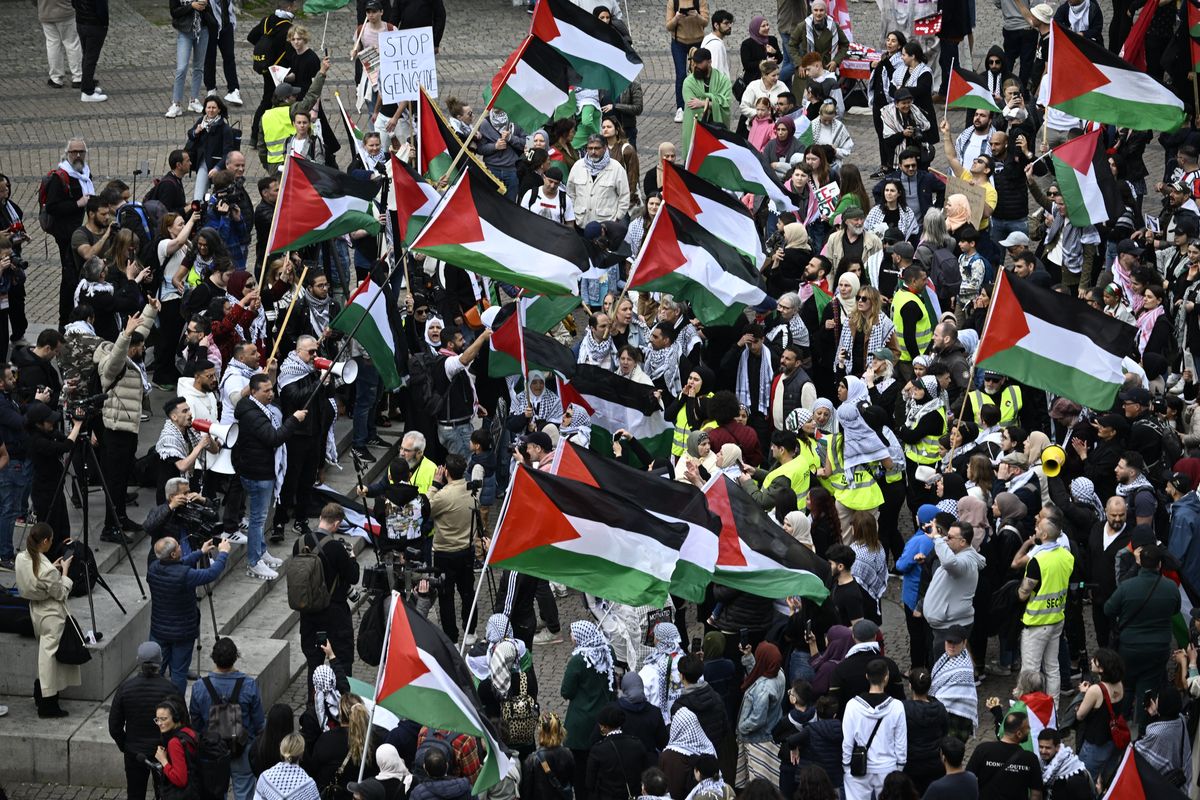Thousands are believed to be protesting Israel's inclusion in the competition as well as the ongoing conflict in Gaza today
Don't Miss
Most Read
Trending on GB News
Ahead of Thursday night's semi-final in Malmo, Sweden, thousands of protestors have taken to the streets of the city to protest Israel's inclusion in the song contest.
Protestors waving Palestinian flags took part in the demonstration to protest against the Israeli military campaign in Gaza while still being allowed a representative in the competition.
Eden Golan is the singer who has been tasked with performing for Israel.
Among those protesting on the streets of Malmo was climate activist Greta Thunberg, who issued a passionate quote to reporters.
"These protests should be everywhere," the activist claimed. "Once again young people are showing the world how to react!"
The protests come after Israel's act Golan was drowned out by boos and chants of "Free Palestine" from the audience during rehearsals.

Israel's inclusion in Eurovision has caused controversy
GETTY
During the practice for the second semi-finals on Thursday, a clip was posted to social media where the attendees in Sweden were heard passionately making their feelings clear.
Many fans initially called for a boycott of the competition after Israel's original entry song included what some perceived to be anti-Palestine lyrics.
The war against Hamas has killed more than 35,000 people in Palestine, and injured a further 77,000 in Gaza, according to figures obtained by Al Jazeera.
Israel's place in the contest comes with major controversy but Eurovision's website states that peaceful protest is allowed: "The EBU is a firm advocate for freedom of speech and the right for people to express their deeply held views and opinions.

Eurovision protests: The pro-Palestine protest took place in Malmo
GETTY
"We understand that people may wish to make their voices heard and support the right of those who wish to demonstrate peacefully."
UK entrant Olly Alexander has also spoke out the pressure he feels being part of the contest whilst the Israel-Hamas war is still ongoing, recently breaking down in tears.
Fans of the contest - which first began in 1956 - highlighted that Russia has not been involved in the contest since they began an unprovoked invasion of Ukraine in 2022, further highlighting their reasons for having Israel pulled from the contest.
After fans spotted Alexander not being himself during the Eurovision pre-party in London, he admitted tearfully to The Times: "Yes, I struggled that day. I was holed up in a room trying not to have a breakdown.
"Normally, you get on stage and turn it on, but I felt really unable to do that. It was tough... I just could not get it together and then I felt ashamed of myself and embarrassed.”
According to the publication [via the Mirror], Alexander began to cry as he emotionally added: "Obviously there are a lot of things I wish were different. And this is so much bigger than me and Eurovision, it really is.
LATEST DEVELOPMENTS:
- ITV Beat the Chasers sparks 'fix' row after Laurence Llewelyn-Bowen loss as fans spot odd timing feature
- Jeremy Clarkson's daughter forced to contemplate 'contacting police' following bout of vile trolling
- BBC's The Repair Shop's Jay Blades sparks concern over TV future as he takes 'break' amid marriage split

Eurovision protests: Thousands took part in the protests on May 9
GETTY
“Obviously, I wish there wasn’t a war or this insane humanitarian crisis. I wish for peace and I have found this experience, at times, extremely... I’ve justfelt really sad and distressed.
"But I still believe it’s a good thing when people come together for entertainment. That’s why I wanted to do Eurovision.”
The booing of Golan isn't the first time pro-Palestine sentiment has been involved in the song contest after Swedish singer Eric Saade - who opened the first semi-final on Monday - wore a keffiyeh symbol on his arm on Tuesday, singing his 2011 entry Popular.
The singer was making a political statement over the Israel-Hamas war which is currently ongoing in Gaza, but left the EBU to state they "regret" his actions on stage.
A spokeswoman for the European Broadcasting Union (EBU) said: “The Eurovision Song Contest is a live TV show. All performers are made aware of the rules of the contest, and we regret that Eric Saade chose to compromise the non-political nature of the event.”
Shortly after Saade's performance, it was revealed that Ireland's act - Bambie Thug - was forced to change some of the lyrics in their song costume after not being allowed to have ogham writing on their face.
Thug initially had "ceasefire" and "free Palestine" on their body, but later revealed: "I am pro-justice and pro-peace... Unfortunately, I had to change those messages today to ‘Crown The Witch’ only, in order from the EBU.”









